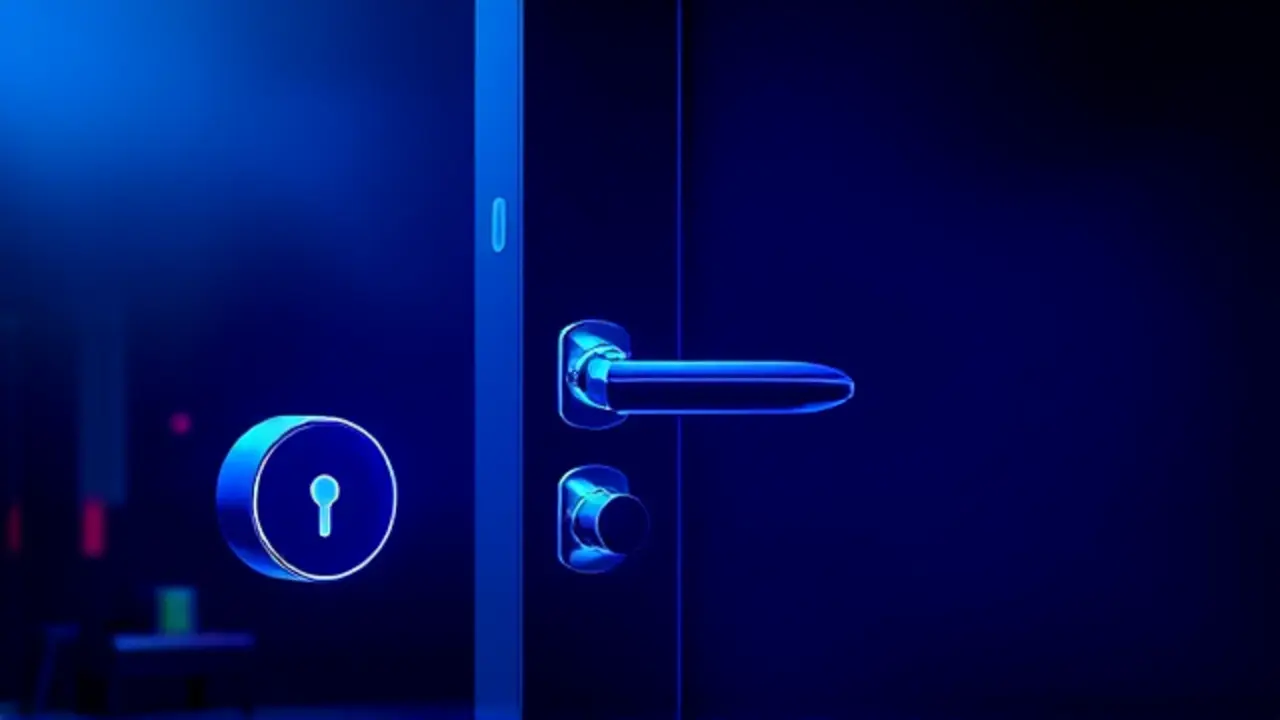6 Best Smart Locks (2025) for Front Doors, Slider Doors, and Even Garages
The front door, that most fundamental barrier between the private sanctum of home and the public chaos of the world, is undergoing a quiet but profound revolution, and it’s high time we took a deep dive into what’s really happening. Forget the simple brass key; we're now talking about a 2025 landscape where your entryway is governed by biometric scanners that read your fingerprint with the precision of a high-security lab, keypads that offer thousands of code combinations to outsmart any casual intruder, and sleek electronic deadbolts that you can engage from your phone while halfway across the country.This isn't just about convenience, though the ability to grant temporary access to a dog walker without needing to hide a rock in the garden is a genuine game-changer; it's about a fundamental shift in how we conceptualize security, ownership, and the very interface of our domestic lives. The journey from the ancient wooden pin lock discovered in the ruins of Nineveh to the modern smart lock is a fascinating one, reflecting our eternal struggle to balance accessibility with impenetrability.For decades, the mechanical lock and key reigned supreme, a technology so entrenched that its flaws—the ability to be picked, the nightmare of being locked out, the need for physical duplication—were simply accepted as facts of life. The advent of the first generation of electronic keypad locks in the late 20th century began to chip away at this paradigm, but they were often clunky, battery-hungry, and prone to failure.Today's smart locks, however, represent a maturation of that technology, integrating seamlessly with home automation ecosystems from Apple, Google, and Amazon, and offering a level of integration that was pure science fiction just a generation ago. But as with any technological leap, this one comes with its own set of complex questions and trade-offs.On one hand, the security benefits are substantial; you receive instant alerts on your phone the moment a door is unlocked, you can review a digital log of every entry and exit, and you can remotely verify that you indeed locked the door behind you, eliminating that nagging doubt that has fueled a million U-turns on the morning commute. For slider doors and garages, traditionally vulnerable points of entry, smart locks offer a robust solution that often includes built-in alarms that trigger if the door is forced, a feature most traditional sliders lack entirely.Yet, on the other hand, cybersecurity experts I've spoken with consistently sound a note of caution. A lock that connects to your Wi-Fi is a lock that can, in theory, be hacked; it creates a new digital attack surface for your home.The choice between a lock that relies on a proprietary hub versus one that connects directly to your cloud account, the strength of its encryption protocols, and the company's history of issuing timely firmware updates become critical factors in the purchasing decision, transforming a simple hardware buy into a nuanced assessment of digital trust. Furthermore, the aesthetic and practical considerations are vast.Do you opt for a minimalist design that almost disappears into the door, or a bold, statement piece that announces its technological prowess? Is a built-in fingerprint reader worth the premium for the sheer speed of access, or is a reliable keypad sufficient? And then there's the issue of power; these are electronic devices, and a dead battery means a locked door, so understanding battery life, having robust low-battery warnings, and maintaining a physical key as a failsafe (if the model even offers one) are non-negotiable parts of the smart lock ownership experience. Looking at the broader context, this trend is a single data point in the larger story of the Internet of Things (IoT) and the increasingly connected home.It reflects a societal move towards frictionless living, where mundane tasks are automated, and data provides a layer of oversight and control previously unimaginable. It also raises philosophical questions about ownership and access—when you can grant and revoke digital keys at will, the nature of what it means to 'have a key' to a place is permanently altered. As we stand on the threshold of this new era, the selection of a smart lock becomes more than a simple upgrade; it's a conscious decision to participate in this evolving relationship with our personal space, a choice that blends practical utility with a small piece of a much larger, and endlessly intriguing, technological future.
Latest News
Hong Kong Policeman Jailed for Sexual Assault
7 days ago0 comments
4 Best Website Builders (2025), Tested and Reviewed
7 days ago0 comments
Nuns escape historic Italian monastery fire.
7 days ago0 comments
6 Best Carpet Cleaners (2025), Tested and Reviewed
7 days ago0 comments
Apple Announces $2 Million Bug Bounty Reward for the Most Dangerous Exploits
7 days ago0 comments
Discord data breach leaks 70,000 user ID photos.
7 days ago0 comments
6 Best Smart Locks (2025) for Front Doors, Slider Doors, and Even Garages
7 days ago0 comments
Discord Data Breach Exposes User ID Photos
7 days ago0 comments
It’s quiet here...Start the conversation by leaving the first comment.
© 2025 Outpoll Service LTD. All rights reserved.
